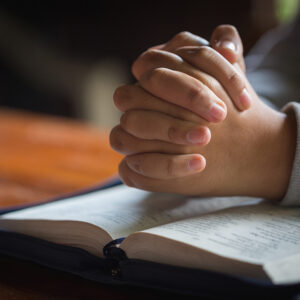Religious freedom is a fundamental right that most Americans with even a cursory knowledge of the Constitution or the nation’s history will recall as a pillar of our democracy. But its application at home and abroad is a complicated task. And getting this task right is crucial to the stability of nations around the world, including our own.
This imperative is what we gleaned from our year-end conversations with global leaders, respected scholars and authors, and clergy and laity for a recent segment of the Bush Institute’s Democracy Talks series. Differences among world religions run sharply across doctrine, practice, and even ethnicity. They also can erupt into violence and bloodshed. The antidote to potential sectarian tensions is to cultivate religious pluralism, where divergent views are explored and tolerated.
The question is, how do those of us in the larger civil society develop respect for religious identities that do not coincide with our own? Fortunately, we heard numerous encouraging examples.
Eboo Patel, founder and president of Interfaith Youth Corps, contends American hospitals offer an instructive example. At first glance, that sounds surprising. But hospitals do serve people of all faiths and respect their differences right down to a patient’s dietary practices. Medical practitioners of all beliefs work together in a common task: To heal others.
In Dallas, as in many cities, faith leaders come together to address issues like racial tensions and affordable housing. Faith Forward and Project Unity, for example, are led in Dallas by clergy like the Rev. Richie Butler, pastor of St. Luke’s Community United Methodist Church.
Collaboration occurs internationally, too, including among followers of Judaism, Islam, and Christianity. One example is how the Tony Blair Institute for Global Change brings together followers of those faiths. The former British prime minister told us the goal is for the followers of the three Abrahamic faiths “to understand each other, see the common points of tradition and history, learn to understand each other, live with each other, like each other.”
The common threads here are finding shared goals, understanding each other’s differences, and being willing to live in community.
The benefits of pluralism, however, don’t result without effective leadership from religious as well as civic leaders. They are in a far better place to facilitate interfaith collaborations than most elected leaders in today’s toxic political climate. But their work must be intentional and consistent.
Of course, debates long have ensued in the United States about whether religion even should play a role in resolving larger public challenges, such as protecting basic human rights. France’s experiment with secularism, or laïcité, offers a cautionary lesson of what happens when religious beliefs are not part of the public dialogue. By officially limiting religion’s role in France’s larger public issues, people motivated by their religious identity have had a harder time integrating into French society. This particularly has been true for France’s growing Muslim population.
The world is witnessing the most extreme example of a government driving religion out of the public square in the Chinese Communist Party’s brutal treatment of Uyghur Muslims. Hundreds of thousands of followers of that historic tradition have been driven into Chinese concentration camps.
The persecution of Uyghurs illustrates why the White House, Congress, statehouses, and the courts must remain vigilant about religious freedom here and around the world. If room is not created in the policy world for an expression of one’s deepest beliefs, it can lead to sectarian strife in a region or country.
Sectarian strife certainly is evident in the Sunni/Shia fissures across the Middle East and the Protestant/Catholic tensions in Northern Ireland. Religious extremism threatens Northern Africa and Sub-Saharan Africa as well.
The United States is not off the hook either. Getting religious freedom right matters immensely to our society, too. Polarization, after all, runs deeply in American life, including over religious identity.
That is clear in debates over transgender Americans, the COVID-19 vaccine, and reproductive technologies, among other issues. The tone and tenor of those debates will determine whether we can mend at least some of our divisions. That is why civic and religious leaders —and hopefully political leaders — should lead by example in having honest, yet constructive conversations.
There certainly is a positive element to getting religious freedom right in our country. Adhering to religious faith is central to many Americans’ lives. Finding ways for believers to express their views will lead to a greater flourishing of our national life. In turn, that strengthens our democracy.

